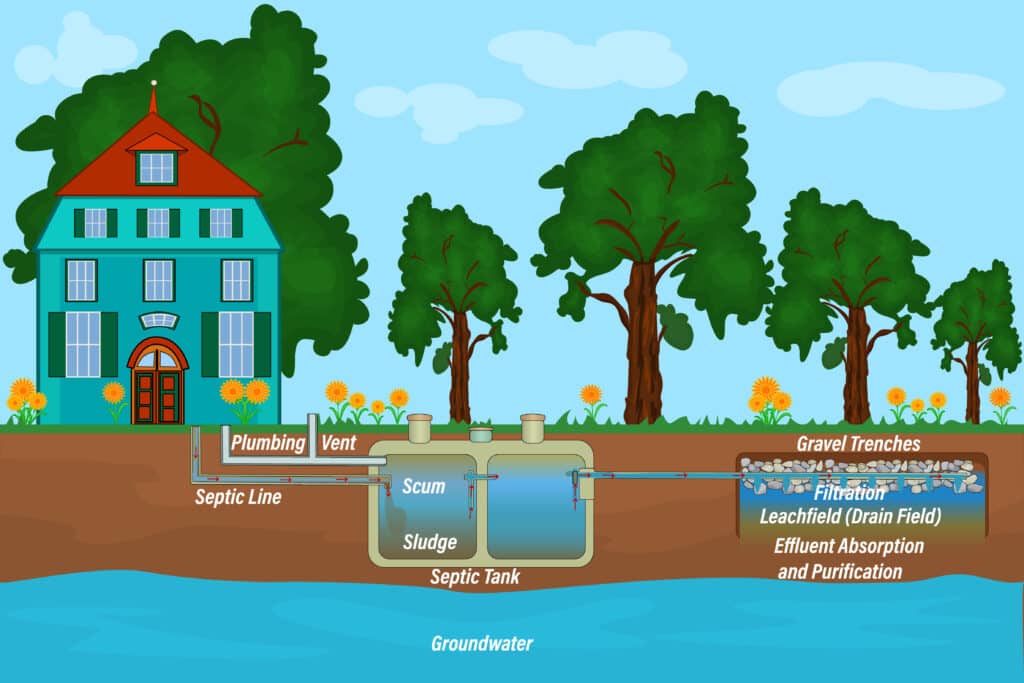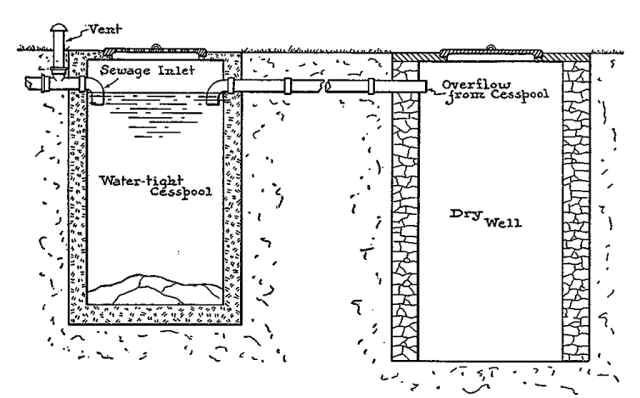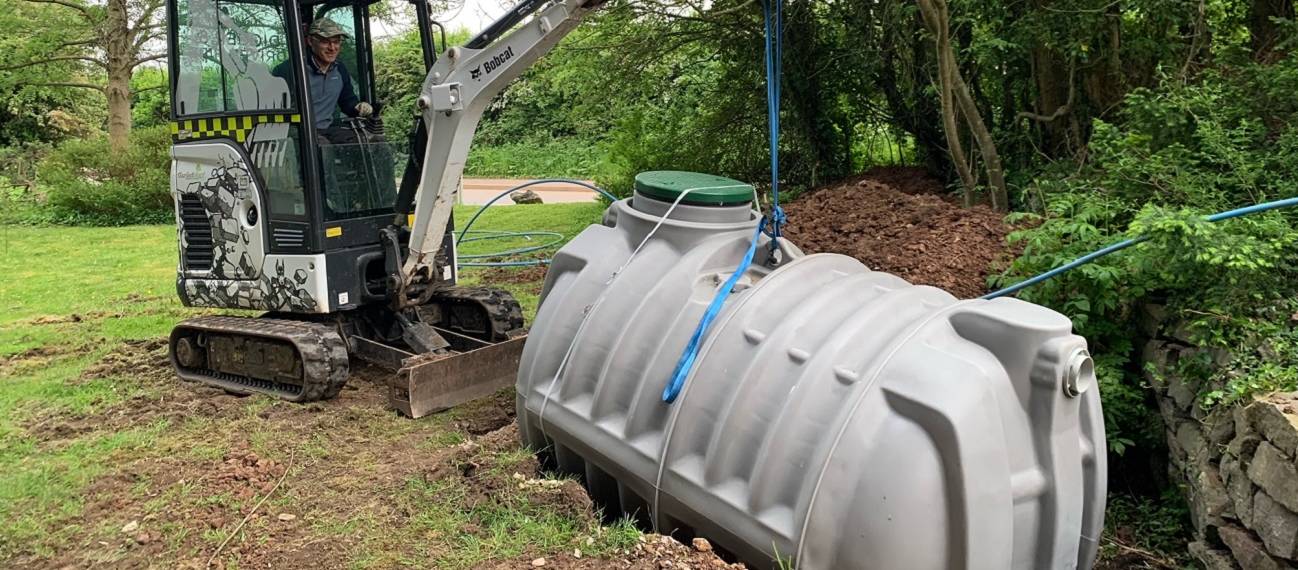Are you facing the dilemma of choosing between a cesspool and a septic tank for waste management? You’re not alone.
Many homeowners find themselves puzzled by these two options. The difference between them can be crucial for your home’s plumbing system and even your wallet. Imagine understanding the pros and cons of each system and making a decision that saves you time, money, and hassle.
This article is your guide to navigate the world of waste management systems. By the end, you’ll know exactly which option suits your needs, ensuring peace of mind and a smoothly running household. Dive in to discover the secrets behind cesspools and septic tanks, and make the best choice for your home!

Credit: www.bridgewaterenviro.com
Cesspool Basics
Cesspools have been used for waste management for many years. They serve as underground storage for sewage and wastewater. Unlike septic tanks, cesspools do not treat waste. Instead, they store it temporarily. This blog section will explore the basic aspects of cesspools. We will delve into their structure, function, benefits, and impact on the environment.
Structure And Function
A cesspool consists of a large underground pit. It is lined with concrete or stone. Wastewater flows directly into this pit. The sides of the cesspool allow liquids to seep into the ground. Solids remain in the pit. Regular maintenance is needed to prevent overflow. Cleaning and pumping out the cesspool are essential tasks.
Pros And Cons
Cesspools are simple and cost-effective. Installation is usually cheaper than septic systems. They require little initial setup. On the downside, they need frequent maintenance. Cesspools can overflow if not regularly emptied. This can lead to unpleasant odors and environmental hazards.
Environmental Impact
Cesspools can impact the environment negatively. They allow untreated wastewater to seep into the ground. This can contaminate local water sources. Potentially harmful bacteria and chemicals may enter the soil. Regular maintenance can minimize these risks. Proper care helps reduce environmental damage.
Septic Tank Essentials
Understanding the essentials of a septic tank system is crucial for anyone considering this waste management option. Unlike cesspools, septic tanks offer a more structured and reliable method for dealing with household waste. Let’s dive into what makes septic tanks a practical choice for many homeowners.
Design And Operation
Septic tanks are designed to separate and treat wastewater efficiently. They typically consist of a tank where solids settle and liquids are filtered through a drain field. This system allows waste to break down naturally, minimizing the need for frequent pumping.
Many people find the operation straightforward. You flush your toilet, and the waste is transported to the septic tank. The tank does the heavy lifting, breaking down the waste and releasing treated water back into the environment.
Have you ever thought about where your waste goes after flushing? Septic tanks offer a glimpse into a cleverly designed system that quietly manages your household waste.
Advantages And Disadvantages
Septic tanks have several advantages. They are cost-effective over time, especially for homes not connected to municipal sewer systems. With proper maintenance, they can last decades.
However, they require regular upkeep. Without periodic inspections and pumping, they can malfunction. This could lead to messy and expensive repairs.
Is the convenience worth the commitment? Regular maintenance might seem daunting, but it ensures your septic system runs smoothly, saving you from future headaches.
Eco-friendly Aspects
Septic tanks are environmentally friendly when maintained properly. They use natural processes to treat wastewater, reducing pollution. The drain field allows treated water to seep into the ground, replenishing groundwater.
Unlike cesspools, septic tanks don’t contribute to groundwater contamination when functioning correctly. This makes them a sustainable choice for waste management.
Could you be contributing to a healthier planet just by choosing a septic system? It’s a decision that benefits both you and the environment.
Cost Considerations
Choosing between a cesspool and a septic tank involves different cost factors. Cesspools generally require more frequent maintenance. Septic tanks, though initially more expensive, offer long-term savings with proper care. Consider installation costs, maintenance, and local regulations when deciding.
When deciding between a cesspool and a septic tank, understanding the cost considerations can significantly impact your decision. Both systems have unique financial implications, and knowing these can help you budget effectively. Let’s break down the costs associated with each option to ensure you’re making an informed choice.Installation Expenses
Installing a septic tank typically involves higher upfront costs due to the complexity of the system. You need to consider the excavation, tank installation, and leach field setup. These elements can quickly add up, sometimes reaching several thousands of dollars. On the other hand, cesspools usually have lower installation expenses. The process is less complicated, often just involving the digging of a pit and lining it properly. However, this simplicity might come with limitations in efficiency and environmental impact. Have you weighed the initial cost against potential future savings?Maintenance Costs
Septic tanks generally require regular maintenance to function efficiently. Pumping out the tank every few years, inspecting the system, and addressing any issues can incur recurring costs. Ignoring these can lead to costly repairs down the line. In contrast, cesspools might seem low-maintenance but can become problematic if not monitored. They often need to be pumped more frequently, potentially increasing your annual expenses. Consider how much effort and money you’re willing to invest in ongoing maintenance.Long-term Financial Implications
A septic tank, while initially pricey, can be a wise long-term investment. It often adds value to your property and is more environmentally friendly, potentially saving you money on future environmental compliance costs. Cesspools, however, might bring unforeseen expenses. They can become less effective over time, necessitating costly upgrades or replacements. Would investing more upfront in a septic tank save you money in the long run? Ultimately, the choice between a cesspool and a septic tank should align with your financial plans. Weigh the costs and long-term implications carefully to make the best decision for your home.Regulatory Requirements
Cesspools and septic tanks have distinct regulatory requirements. Cesspools often face stricter regulations due to pollution risks. Septic tanks must meet specific standards for waste treatment and soil absorption. Compliance ensures environmental safety.
Understanding the regulatory requirements for cesspools and septic tanks is crucial for homeowners. These systems are not just about managing waste; they are about meeting legal standards and ensuring environmental safety. Navigating these regulations can be daunting, but knowing what to expect can make the process smoother.Local Regulations
Local regulations for cesspools and septic tanks can vary significantly. Some areas have stringent rules due to environmental concerns, while others may have more lenient guidelines. It’s vital to check with your local health department or environmental agency to understand the specific requirements in your area. In some regions, cesspools are being phased out in favor of more environmentally friendly septic systems. This shift often comes with incentives to encourage compliance. Have you checked whether your area is moving towards stricter environmental standards?Permitting Process
Obtaining a permit for a cesspool or septic tank can be a detailed process. You typically need to submit plans for your system, including its location and design, to your local authorities. They will review these plans to ensure compliance with health and safety standards. The permitting process may also involve site inspections and soil tests. These steps are crucial to ensure that your system will function correctly without harming the environment. Have you prepared all necessary documents and information for your application?Compliance Challenges
Staying compliant with regulatory requirements can be challenging. One common issue is keeping up with changes in regulations, which can happen without much notice. Homeowners must stay informed to avoid penalties or the need for costly upgrades. Another challenge is maintaining your system according to local standards. Regular inspections and maintenance are often required to ensure ongoing compliance. Are you aware of the maintenance schedule needed to keep your system in check? By understanding the regulatory landscape, you can make informed decisions about your waste management system. This knowledge not only helps you stay compliant but also protects your investment and the environment.Choosing Based On Property Needs
Choosing the right waste management system depends on various factors. Every property is unique. Understanding its needs is crucial. Cesspools and septic tanks offer different benefits. Your decision should align with your property’s characteristics. Consider soil, terrain, size, and future plans.
Soil And Terrain Factors
Soil type affects waste absorption. Sandy soil drains well. Clay soil retains water. A septic tank works better in sandy areas. Cesspools may struggle with poor drainage. Terrain also influences choice. Steep slopes challenge cesspool installation. Flat land suits both systems.
Property Size And Usage
Larger properties often benefit from septic tanks. They handle more waste. Smaller properties might use cesspools. Consider household size. More occupants produce more waste. High usage demands efficient waste systems. Match system capacity with property needs.
Future Expansion Plans
Think about future property changes. Planning an extension? A septic tank offers more flexibility. Cesspools might need frequent upgrades. Consider long-term costs. Installation and maintenance vary. Choose a system that adapts to your plans. Ensure it supports future needs.
Health And Safety Concerns
Cesspools and septic tanks both manage waste, but their health and safety concerns differ. Cesspools risk contamination due to lack of treatment. Septic tanks treat waste, reducing environmental hazards. Proper maintenance is crucial for both systems to prevent leaks and protect groundwater.
Health and safety are paramount when considering waste management systems like cesspools and septic tanks. Both systems have their unique challenges and potential risks. Understanding these concerns can help you make informed decisions for your home and family.Risks Of System Failure
System failures in cesspools or septic tanks can lead to unpleasant and hazardous situations. A malfunctioning system might cause waste to back up into your home, creating a health hazard. Imagine waking up to a foul odor permeating your home—it’s not just unpleasant, it’s a sign of a serious problem that needs immediate attention. While cesspools are more prone to overflow due to their design, septic tanks can also fail if not regularly maintained. Failure to act can lead to costly repairs and health risks. Are you prepared to manage such a situation?Safety Measures
Regular maintenance is key to preventing health hazards from cesspools and septic tanks. Keep a schedule for professional inspections and cleaning. This proactive approach can save you from unexpected crises. You can also install alarms to alert you of potential overflows or leaks. This simple step can prevent a minor issue from turning into a major problem. What safety measures have you implemented to protect your home?Impact On Water Quality
Both cesspools and septic tanks can affect your local water quality if they malfunction. A leaking system can contaminate groundwater, posing risks to your drinking water supply. Ensuring your system is properly sealed and maintained is crucial to avoid such contamination. Consider the impact on your community’s water sources. Taking care of your system not only protects your family but also your neighbors. How does your current waste system impact the environment around you? By prioritizing health and safety, you can ensure a clean and safe environment for your family and community.Community And Environmental Effects
Cesspools can leak waste into groundwater, harming local ecosystems. Septic tanks offer better containment, reducing environmental risks. Communities benefit from fewer health hazards with septic systems, promoting cleaner surroundings.
When choosing between a cesspool and a septic tank, understanding their impact on the community and the environment is crucial. These systems may seem similar at first glance, but their effects can differ vastly. As you explore these differences, consider how they affect not just your property, but the world around you.Impact On Surrounding Areas
Cesspools often have a more immediate impact on their surroundings. They are essentially large pits that collect waste, which can seep into nearby soil and water. This can lead to contamination of local water sources. Septic tanks, on the other hand, are designed to treat wastewater before it’s released. The treated effluent is usually much safer for the environment. However, a poorly maintained septic tank can also lead to leaks and contamination. Have you ever noticed a foul smell or murky water in your neighborhood? It might be a sign of a cesspool issue nearby.Long-term Environmental Effects
The long-term environmental effects of cesspools can be particularly concerning. Over time, they can cause significant soil and groundwater pollution. This pollution can affect local ecosystems and biodiversity. Septic tanks, if maintained properly, tend to have a less harmful impact over the years. They require regular pumping and inspection to ensure they function efficiently. Imagine a future where clean water and healthy soil are the norms. Choosing the right waste management system today can contribute to that future.Community Preferences
Communities often have clear preferences based on local conditions and regulations. In areas with sensitive ecosystems, septic tanks are usually preferred due to their treatment capabilities. They are often seen as the more sustainable option. However, in some regions, especially where space is limited, cesspools might still be in use. It’s important to understand local guidelines and community sentiments when making your choice. Which system do you think your community prefers? Understanding community preferences can help you make a more informed decision about your waste management system. Whether you’re drawn to the less immediate impact of a septic tank or the simplicity of a cesspool, your choice affects more than just your backyard. Consider the broader implications for your community and the environment when making your decision.
Credit: www.abccesspoolandsepticpumping.com

Credit: www.premiertechaqua.com
Frequently Asked Questions
What Is The Main Difference Between Cesspool And Septic Tank?
A cesspool stores waste. A septic tank treats and processes waste. Both need regular maintenance.
How Often Should A Cesspool Be Emptied?
A cesspool needs emptying every one to three years. Frequency depends on usage and size.
Is A Septic Tank More Environmentally Friendly Than A Cesspool?
Yes, septic tanks treat waste and reduce pollution. Cesspools only store waste without treatment.
Can Cesspools Cause Groundwater Contamination?
Yes, cesspools can leak and contaminate groundwater. This poses health risks if not properly managed.
Which Is More Cost-effective: Cesspool Or Septic Tank?
Septic tanks are usually more cost-effective long-term. They need less frequent maintenance and offer better waste treatment.
Conclusion
Choosing between a cesspool and a septic tank depends on needs. Cesspools require more frequent maintenance and can overflow. Septic tanks are more efficient and environmentally friendly. Both systems have pros and cons. Consider costs, maintenance, and local regulations. A septic tank is often the better choice for most homes.
But always evaluate your specific situation first. Consult with professionals if unsure. Proper care ensures long-lasting systems. Keep your wastewater solution efficient and safe. Make the right choice for your property and community.





